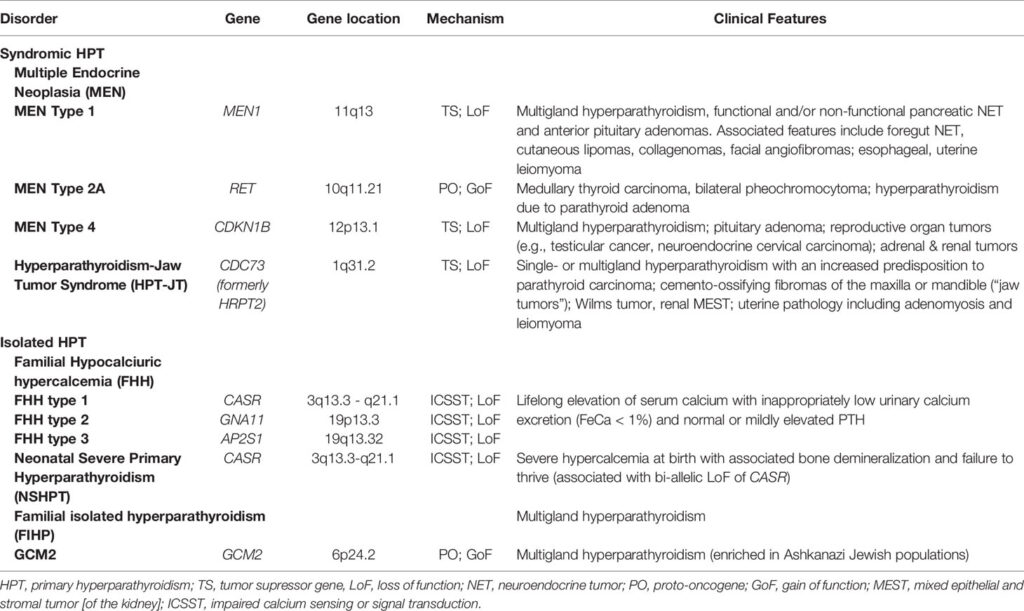Hyperparathyroidism, often abbreviated as HPT, is a medical condition that affects the parathyroid glands, which are small structures located in the neck. These glands play a crucial role in maintaining the balance of calcium and phosphorus in the body. When they malfunction, it can lead to significant health complications. This article provides an in-depth look at this condition, covering its causes, symptoms, diagnostic methods, and treatment options.
Understanding Hyperparathyroidism
The parathyroid glands produce a hormone known as parathyroid hormone. This hormone regulates the levels of calcium in the blood by controlling how much calcium is absorbed from food, released from bones, and excreted by the kidneys. Hyperparathyroidism occurs when one or more of these glands become overactive, leading to excessive production of this hormone. As a result, calcium levels in the blood rise, potentially causing a variety of health issues.
Types of Hyperparathyroidism
- Primary Hyperparathyroidism: This form occurs due to a problem within the parathyroid glands themselves. It is often caused by a benign tumor called an adenoma, hyperplasia (enlargement of the glands), or, rarely, cancer of the parathyroid glands.
- Secondary Hyperparathyroidism: In this type, the overactivity of the parathyroid glands is a response to low calcium levels in the body, often due to conditions like kidney disease or vitamin D deficiency.
- Tertiary Hyperparathyroidism: This rare form develops after long-term secondary hyperparathyroidism, where the glands continue to overproduce the hormone even after the underlying cause has been addressed.
Symptoms of Hyperparathyroidism
The symptoms of this condition can vary widely, depending on the severity of calcium imbalance and the individual’s overall health. Some people may experience mild or no symptoms, while others may face more pronounced effects. Common symptoms include:
- Fatigue and weakness
- Depression or irritability
- Nausea and loss of appetite
- Constipation
- Excessive thirst and frequent urination
- Kidney stones
- Bone pain or fractures due to weakened bones
- Memory problems or difficulty concentrating
In severe cases, high calcium levels can lead to life-threatening complications such as heart rhythm abnormalities or coma. Therefore, recognizing these symptoms early is essential for timely intervention.
Diagnosing Hyperparathyroidism
Diagnosing this condition typically involves a combination of blood tests, imaging studies, and clinical evaluation. The process begins with routine blood work that measures calcium and parathyroid hormone levels. If both are elevated, it strongly suggests the presence of hyperparathyroidism.
Blood Tests
Blood tests are the cornerstone of diagnosis. They measure:
- Calcium levels: High levels indicate hypercalcemia, a hallmark of the condition.
- Parathyroid hormone levels: Elevated levels confirm overactivity of the glands.
- Vitamin D levels: Low levels may suggest secondary hyperparathyroidism.
- Phosphorus levels: Abnormal levels can provide additional clues about the underlying cause.
Imaging Studies
To pinpoint the exact location of abnormal glands, doctors may use imaging techniques such as:
- Ultrasound: A non-invasive test that uses sound waves to visualize the neck area.
- Sestamibi scan: A specialized nuclear medicine test that highlights overactive glands.
- Computed tomography (CT) or magnetic resonance imaging (MRI): These advanced imaging methods may be used if other tests are inconclusive.
Clinical Evaluation
A thorough medical history and physical examination are also critical. The doctor will assess symptoms, review risk factors, and check for signs such as bone tenderness or kidney stones. This comprehensive approach ensures an accurate diagnosis and helps tailor the treatment plan to the individual’s needs.
Treatment Options for Hyperparathyroidism
The treatment for this condition depends on its type, severity, and the patient’s overall health. In some cases, monitoring may be sufficient, while others may require more aggressive interventions.
Observation and Monitoring
For individuals with mild primary hyperparathyroidism and no significant symptoms, regular monitoring may be recommended. This involves periodic blood tests to track calcium and parathyroid hormone levels, as well as assessments for complications such as bone density changes or kidney stones.
Lifestyle Modifications
Making certain lifestyle changes can help manage symptoms and reduce the risk of complications:
- Stay hydrated to prevent kidney stones.
- Eat a balanced diet rich in calcium and vitamin D.
- Engage in weight-bearing exercises to strengthen bones.
- Avoid medications that can worsen hypercalcemia, such as certain diuretics.
Medications
In cases where surgery is not an option or the condition is secondary, medications may be prescribed. These include:
- Calcimimetics: Drugs that mimic the action of calcium in the blood, reducing parathyroid hormone production.
- Bisphosphonates: Medications that help strengthen bones and prevent fractures.
- Vitamin D supplements: Used to address deficiencies contributing to secondary hyperparathyroidism.
Surgical Intervention
Surgery is often the most effective treatment for primary hyperparathyroidism, especially when caused by a tumor or enlargement of the glands. The procedure, known as parathyroidectomy, involves removing the affected gland or glands. Minimally invasive techniques have made this surgery safer and less invasive, with quicker recovery times.
When Is Surgery Recommended?
Surgery is typically advised if:
- Blood calcium levels are significantly elevated.
- There is evidence of bone loss or fractures.
- Kidney stones or other complications are present.
- Symptoms are severe and impacting quality of life.
Managing Complications
Hyperparathyroidism can lead to several complications if left untreated. Managing these effectively is a key part of care.
Bone Health
High calcium levels can weaken bones, increasing the risk of fractures. Regular bone density scans and appropriate treatments, such as bisphosphonates, can help preserve bone strength.
Kidney Health
Kidney stones are a common complication. Staying well-hydrated and following dietary recommendations can reduce the risk. In some cases, medications may be needed to manage stone formation.
Cardiovascular Health
Abnormal calcium levels can affect heart function. Regular monitoring and managing other cardiovascular risk factors, such as high blood pressure or cholesterol, are important for overall health.
Living with Hyperparathyroidism
While this condition can be challenging, many individuals live full and healthy lives with proper management. Education, regular follow-ups with healthcare providers, and adherence to treatment plans are essential for maintaining well-being. Support groups and resources can also provide valuable guidance and encouragement for those navigating this journey.





